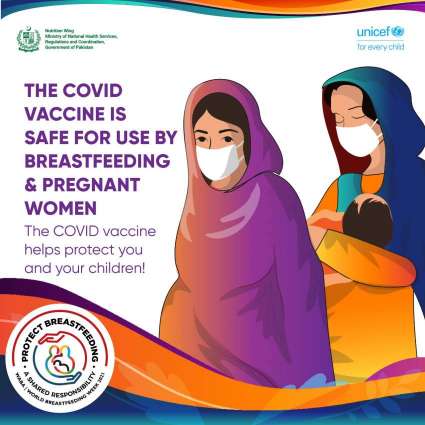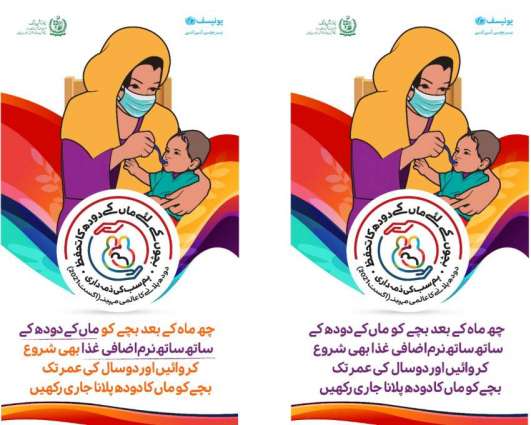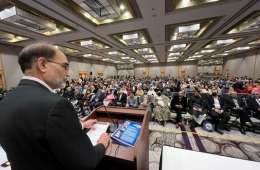Breastfeeding Critical For Infant Survival

Breastfeeding helps provide the baby's initial dose of immunity, protecting the infant from deadly illnesses and death. When you are born, breastfeed (only) for the first hour. Once that hour is up, use an additional feeding method (besides breastfeeding) for a set period of time (up to 5 months) and continue breastfeeding for an additional period of time (up to 23 months). All three methods offer an important line of defence against childhood malnutrition, including malnutrition from being wasted.
Breastfeeding not only saves lives, but also protects infants from dangerous diseases.
Not receiving enough breast milk in the first two years of life increases the likelihood of diarrheal disease and an increased likelihood of early death in developing nations. A significant percentage of diarrhoea episodes and a third of respiratory infections might be prevented if women received assistance to breastfeed. Breastfeeding is clearly the most efficient health measure, making it a powerful public health intervention. We have to ensure that every kid has the greatest possible start in life. Maternity and newborn infants are human rights, and the right to them should be safeguarded and advanced.
In the past four decades, exclusive breastfeeding has seen a 50% rise. Therefore, an estimated 900 million babies across the world have benefitted from exclusive breastfeeding in the first year of life. Despite the plentiful and persuasive data, many nations' breastfeeding rates are dangerously low. Less than half of newborn newborns are nursed in the first hour of life, losing out entirely on the advantages of nursing to survive and develop.
Even now, 40 years after the bill was enacted, the Code is as relevant as it was when it was introduced on May 21st, 2021.
As required by the World Health Assembly and its member nations, we encourage producers of baby formula to follow the CODE requirements.
As a result of the COVID-19 epidemic, several nations have found that access to infant and child feeding services has been greatly disrupted, potentially reversing some of the progress that has been achieved in certain places.
It is baseless for baby food marketers to suggest that nursing may transmit COVID-19, however, in light of the current COVID-19 epidemic, there is no need to stop breastfeeding. It is absolutely obvious to me. Even when the mother is known or suspected to have COVID-19, breastfeeding is safe for young children. Overall, the dangers connected with the virus exceed the significant advantages of breastfeeding.
Studies have demonstrated that breastfed infants are not at risk of being infected with SARS-CoV-2 via breastmilk. WHO and other organisations such as the CDC, UNICEF, and the Royal College of Obstetricians and Gynecologists all advise women to continue to breastfeed their babies if they have been diagnosed with COVID-19.
COVID-19 vaccinations have been recommended by WHO for breastfeeding mothers, as well as other people. People who are nursing or expressing milk at the moment CAN get the vaccinations.
A mother's health is inextricably linked to the health of her baby.
Though research on COVID-19 vaccines examined the effects of mRNA and non-replicating vaccines on breastfeeding women and on their breastfed children, it did not examine breastfeeding women or account for the effects of mRNA or non-replicating vaccines on breastfed children or the effects of mRNA or non-replicating vaccines on them.
As an example, however, without any evidence, it is impossible to say whether or not the vaccination is safe for nursing mothers and their infants. WHO advises that women who have received the COVID-19 vaccination may continue breastfeeding.
Breastfeeding Week 2018, which ran from April 1 to April 7, focused on highlighting everyone's responsibility in helping promote breastfeeding, at every level.
Everyday citizens, governments, and aid organisations all have a role to play in solving the global malnutrition crisis. These groups should all pledge significant financial resources in order to have an impact in tackling the global malnutrition crisis over the next two years, especially in regard to the upcoming UN Food Systems Summit in September and the Nutrition for Growth Summit in December of 2021.
They should also display action in terms of concrete commitments by making toward promoting and supporting breastfeeding to the fullest extent possible.
With comprehensive legislative measures implemented and independently monitoring the compliance of health professionals and health facilities, governments must completely implement the International Code of Marketing of Breast-Milk Substitute.
Family-friendly policies such as offering at least 18 weeks of paid maternity leave should be put in place for both businesses and employers.
Returning to work is sometimes a roadblock for new moms who want to breastfeed and provide their children with the greatest possible nutrition.
Donors should provide more money for the implementation of the International Code of Marketing of Breast-Milk Substitutes, breastfeeding assistance, and counselling programmes.








